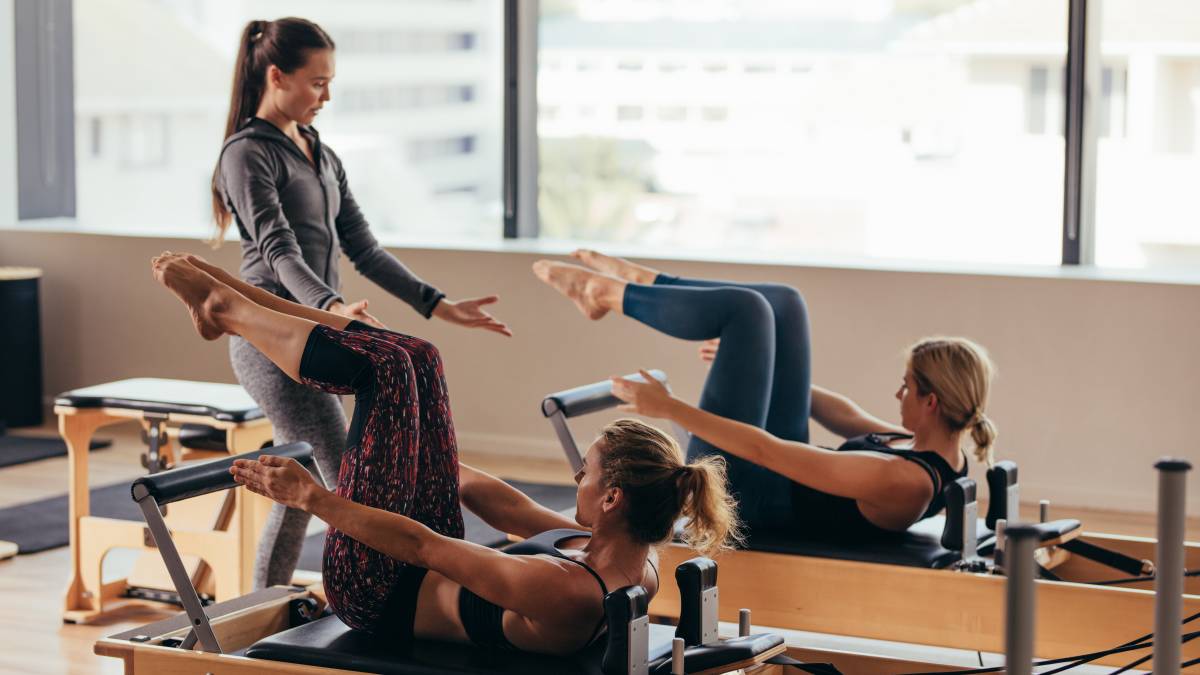- Home/
- Costs/
- Personal Training/
- Personal Trainer Cost Guide

How much does a personal trainer cost in the US?
Get a free quote nowPost to find a price. It's free and only takes a minute.
Average cost per hour
$50 - $300
low
$50
median
$100
high
$300
Last Updated on
Key Facts
- Personal trainer rates in the US range from $50 to $300 per hour, depending on experience, location, and session type.
- Package deals can lower the per-session cost—perfect for long-term fitness goals like weight loss or athletic training.
- Personal training at home offers tailored programs and convenience, but may come with added travel fees.
Personal training is a great way to get in shape and learn valuable health and fitness concepts that will help throughout your lifetime.
However, personal fitness training is an investment. When you find a personal trainer near you, you’ll be surprised that costs may vary widely, so finding the right trainer can be difficult if you don’t know what to look for.
In this guide, we’ll discuss the factors influencing personal training costs, explain how services are priced, and provide helpful tips on choosing the right trainer.
Personal trainer price list
The cost of a personal trainer can vary based on factors such as location, experience, and session type. On average, one-on-one training with a personal trainer range from $50 to $300+ per session. Meanwhile, group sessions typically more affordable, and they range from $5 to $35 per session.
However, it’s important to note that prices can vary depending on your gym and additional services. Below are a few examples of the expected personal trainer cost per hour in the US:
| Location | Cost |
|---|---|
| New York City, NY | $75 to $300+ |
| Los Angeles, CA | $50 to $200 |
| Chicago, IL | $60 to $150 |
| Miami, FL | $50 to $180 |
| Dallas, TX | $60 to $150 |
 TRX training with a personal trainer can improve strength and form. (Source: iStock)
TRX training with a personal trainer can improve strength and form. (Source: iStock)
How personal training services are priced
Most personal trainers price their services by using an hourly rate, or by packaging their services as you would purchase a fitness class. These packages can include 30 to 90-minute sessions and are similar to by-the-hour pricing structures. Each trainer or gym sets their prices differently depending on their schedule and the value they can provide to clients.
 Strength training with personal guidance can enhance performance and safety. (Source: iStock)
Strength training with personal guidance can enhance performance and safety. (Source: iStock)
Your gym may provide personal training services where you can be matched with a trainer that meets your goals and needs. In this case, you’ll be paying the gym a monthly or session fee rather than the trainer themselves. Gym training services are often more affordable than hiring an individual, but the trainers here likely have less experience and education than those who operate their own personal training business.
Package deals are ideal for those who want long-term training or are planning to meet a certain goal. For example, if you are planning to complete a triathlon, you may want to schedule a training session for six months to a year in advance.
If you are trying to lose weight, a three to six-month training period is ideal so you can give yourself time to adjust to a new lifestyle and see your trainer’s results. Package deals often help you save money by reducing the cost per session when you pay upfront.
Factors that influence personal training costs
Personal trainer costs per month are different everywhere you go. On average, you can expect to pay between $50 to $100 per hour for a gym resident trainer, or a bit more for an individual trainer to come to your home or gym. However, there are other factors at play that may affect your trainer’s rate, including:
Location
If you live in a major metropolitan area, you can expect to pay more than someone in the suburbs for a local trainer. However, this isn’t the only factor at play. Some trainers will come to your home and may include travel expenses as part of their pricing. Trainers that have partnerships with a local gym will also charge a higher fee because you’ll have access to better equipment and accommodations than you would at home.
Trainer experience and education
Contrary to common belief, personal trainers aren’t just fitness fanatics. All reputable trainers receive certifications and some bachelor’s degrees in athletic coaching, physical therapy and rehabilitation, or sports medicine.
You should always look for a trainer with certifications from organizations such as the National Academy of Sports Medicine (NASM), American Council on Exercise (ACE), American College of Sports Medicine (ACSM), or the National Strength and Conditioning Association (NSCA). If you are looking for more specialized services, finding a trainer with higher education is a wise investment.
 Some trainers offer duo sessions at a reduced cost. (Source: iStock)
Some trainers offer duo sessions at a reduced cost. (Source: iStock)
Session length and recurrence
Because most trainers use an hourly rate for their services, shorter sessions (30 minutes vs. the full hour) will be less expensive upfront. However, most trainers offer discounts for longer sessions. For example, a trainer may charge $45 for half an hour whereas they only charge $60 for the full hour. They may also offer discounts when you purchase packages, such as four sessions per month rather than individually.
Group training
Many believe that hiring a personal trainer means you’re choosing one-on-one sessions with a coach. However, many offer group sessions where you can meet with your friends and receive the same coaching for a reduced rate. This is a matter of personal preference.
If you’re excited to work out with some friends or your family, group coaching may be a great option for you. However, if you’re looking for more targeted results, private sessions may be your best option.
Choosing the right trainer for you
Finding a trainer should be a very selective process. Working out isn’t necessarily everyone’s favorite activity, so you want to ensure you find someone with whom you’ll enjoy spending your time. Women may prefer a female personal trainer while athletes may also look for sports coaches. Whatever the case, you don’t want to dread your gym sessions before they even start!
Here is what you need to do to find a trainer that will work for you:
Schedule a consultation
The initial consultation is essential to finding the right trainer. You want to not only ensure you can reasonably afford their services but like their coaching method and style. If you don’t like your trainer, you are less likely to stick to your routine, or worse, may swear off personal training altogether. The initial consultation is the time to go over your fitness goals and ask questions so you know what to expect.
Let them know about injuries and health conditions
Training safely is the key to long-term results. If you’ve suffered injuries or have any medical conditions that may affect your capabilities, it’s important to let your trainer know. If you choose a trainer that’s inexperienced, they may not fully understand how to work around these injuries, and may inadvertently put you out of the game and further the distance between you and your goals.
Ask about group and online coaching.
For some, one-on-one training is ideal. You may want the tough-love or may feel self-conscious about training in front of others. For others, working out with a group of friends will improve confidence and make the training sessions more enjoyable.
Online training is also an option for those looking for a lower commitment and an affordable option. Online classes start as low as $10 a month for video training and meal plan creation. It can be an excellent way to dip your toes in the water before hiring a personal trainer.
 A woman performs a kettlebell squat during her home fitness routine. (Source: iStock)
A woman performs a kettlebell squat during her home fitness routine. (Source: iStock)
Saving money when choosing a training class
When it comes to a service as personal as fitness training, choosing the cheapest options isn’t always the best idea. You don’t want an inexperienced coach working with you, especially if you’ve never hired a trainer before and don’t know what to expect. However, there are several ways in which you can reduce the overall costs of your personal training without settling for an inexperienced trainer.
Attend group classes
Group classes are not only a great way to save money, but they often keep you motivated. Working out with a group of friends with similar fitness goals can make sessions more enjoyable and will keep you accountable for attending. When choosing group services, each person will likely receive a discounted rate helping everyone save.
Choose package deals
Again, this helps improve motivation as well as save money long-term. If you pay for four, ten, or 20 sessions at once, you’ll likely be able to save a little per session. Plus, when you pay for these upfronts you’re more likely to stick to a schedule and follow through than if you pay by the session.
Supplement training with at-home workouts
Many trainers will recommend you start coming to their gym at least once a week if not more when starting out. However, you don’t need a personal trainer for every workout. They are there to guide you and teach you the best methods for working out, as well as provide you with nutritional guidance to improve results.
You can also supplement time with them by exercising at home or by yourself at the gym, practicing the techniques you learn during training. Cardio workouts, such as running, biking, or Pilates, can be done any time and in settings that aren’t the gym for a nice change of pace.
Connect with the nearest personal trainers through Airtasker
You can find local, qualified personal trainers in your area by using Airtasker. Sign up for free, and post your first task looking for a personal trainer in your area. You set your budget, and qualified professionals will offer their services to you. After reading reviews, you’ll be ready to choose the trainer that best fits your needs and style. Get started on Airtasker today and embark on your journey to a healthier, active lifestyle.
FAQs
Gym trainers can be more affordable, but may have less flexibility or experience than independent trainers. If personalisation and specialised expertise are important, an independent trainer might be better suited to your needs.
Not at all. Personal trainers are equipped to work with beginners and can tailor fitness programs to your current ability and health condition. It’s important to choose someone who aligns with your comfort level and goals.
Yes. Online sessions can be a more flexible and affordable option. They’re ideal for those seeking a lower-commitment approach or for remote guidance on workouts and meal plans.
Find personal trainers, fast
Post a task
Related price guides
Related articles

